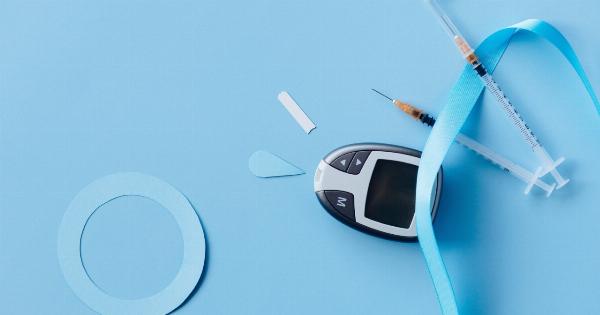Obsession is a term that often gets a bad rap. However, it can be beneficial if managed in the right way. Being passionate about something can drive you to make progress and can push you to keep learning.
But when does passion cross over into an obsession? How obsessive are you? Let’s find out!.
What is Obsession?
Obsession is when a thought, feeling, or activity dominates your mind and becomes a central part of your life. It can manifest itself in various ways, such as constantly thinking about a certain subject or engaging in a particular action repetitively.
Obsession can have both positive and negative impacts on your life. It can help you strive towards achieving your goals, but it can also lead to you neglecting other important areas of life such as relationships, work, and health.
The Characteristics of Obsessive Behavior
So, how to know if you have obsessive behavior? Here are a few characteristics that can help you identify the signs:.
1. Repetitive Actions
If you find yourself repeatedly doing the same action, such as checking the locks or washing your hands, it might be a sign of obsessive behavior. This type of behavior is often linked to anxiety and obsessive-compulsive disorder (OCD).
2. Excessive Worrying
Obsessive behavior can lead to excessive worrying. You may experience frequent and intense feelings of worry, which can have a significant impact on your mental wellbeing.
This type of behavior can also cause physical symptoms such as sweating, heart palpitations, and headaches.
3. Needing Control
People with obsessive behavior often feel the need to control everything in their lives. This can lead to difficulties in relationships and at work as they struggle to relinquish control.
4. Inability to Let Go
Letting go of things can be challenging for anyone, but for those with obsessive behavior, it can be extremely difficult. They may hold onto negative memories and emotions for a long time, leading to feelings of stress and anxiety.
5. Intense Focus on a Particular Subject
Obsessive behavior can lead to an intense focus on a particular subject.
You may find yourself spending large amounts of time researching and thinking about a particular topic, to the point that it interferes with other areas of your life such as work or relationships.
The Impact of Obsessive Behavior
Obsessive behavior can have a significant impact on your life, both positively and negatively. Here are a few ways in which it can impact your life:.
1. Health Problems
Obsessive behavior can lead to physical health problems such as fatigue, headaches, and sleep difficulties, as well as mental health problems such as anxiety and depression.
2. Interpersonal Difficulties
Obsessive behavior can lead to difficulties in relationships with friends, family, and coworkers. This type of behavior can make it hard to maintain healthy relationships as you may struggle to balance your obsession with other areas of your life.
3. Work-related Issues
Obsessive behavior can lead to work-related issues such as procrastination, absenteeism, and difficulty focusing on tasks. If your obsession is taking up a lot of your time and energy, it can make it hard to perform well at work.
How to Manage Obsessive Behavior
If you’re experiencing obsessive behavior, there are ways to manage it. Here are a few techniques that can help:.
1. Seek Professional Help
If your obsessive behavior is interfering with your daily life, seeking professional help can be beneficial. A mental health professional can provide support and guidance on how to manage your behavior.
2. Practice Mindfulness
Mindfulness can help you stay present in the moment and reduce your obsessive thoughts. By practicing mindfulness techniques such as meditation or deep breathing, you can learn to redirect your focus away from your obsession.
3. Build a Support Network
Having a support network can be beneficial when managing obsessive behavior. Surround yourself with people who understand your behavior and can provide you with support and encouragement.
4. Set Boundaries
To manage your obsessive behavior, it’s essential to set boundaries for yourself. This might include limiting the amount of time you spend engaging in your obsession or identifying triggers that lead to obsessive thoughts.
5. Pursue Healthy Hobbies
Engaging in activities that you enjoy can help you redirect your focus away from your obsession. Pursuing healthy hobbies such as exercise, cooking, or reading can give you a break from your obsessive thoughts.
So, How Obsessive Are You?
Now that we’ve discussed the characteristics of obsessive behavior and its impact on your life let’s move on to the fun part – determining how obsessive you are! Take the quiz below to find out:.
Quiz: How Obsessive Are You?
Answer the following questions to determine how obsessive you are:.
1. How frequently do you engage in repetitive or ritualistic behaviors?.
- a. Never
- b. Rarely
- c. Sometimes
- d. Often
2. How often do you worry excessively about things?.
- a. Never
- b. Rarely
- c. Sometimes
- d. Often
3. Do you find it hard to let go of negative memories or experiences?.
- a. Never
- b. Rarely
- c. Sometimes
- d. Often
4. How often do you feel the need to control everything in your life?.
- a. Never
- b. Rarely
- c. Sometimes
- d. Often
5. How much time do you spend researching or thinking about a particular topic?.
- a. Less than an hour a week
- b. A few hours a week
- c. Several hours a week
- d. More than 10 hours a week
Scoring
Now that you’ve answered the questions, let’s calculate your score:.
1. a-0, b-1, c-2, d-3.
2. a-0, b-1, c-2, d-3.
3. a-0, b-1, c-2, d-3.
4. a-0, b-1, c-2, d-3.
5. a-0, b-1, c-2, d-3.
Add up your score –.
- 0-4: You do not exhibit obsessive behavior.
- 5-8: You exhibit mild obsessive behavior.
- 9-12: You exhibit moderate obsessive behavior.
- 13-15: You exhibit severe obsessive behavior and may require professional help.
Conclusion
If you exhibit obsessive behavior, don’t worry – it’s a common condition that can be managed with the right techniques.
By identifying the signs of obsessive behavior, understanding its impact on your life, and practicing self-care, you can manage your behavior and lead a fulfilling life.





























